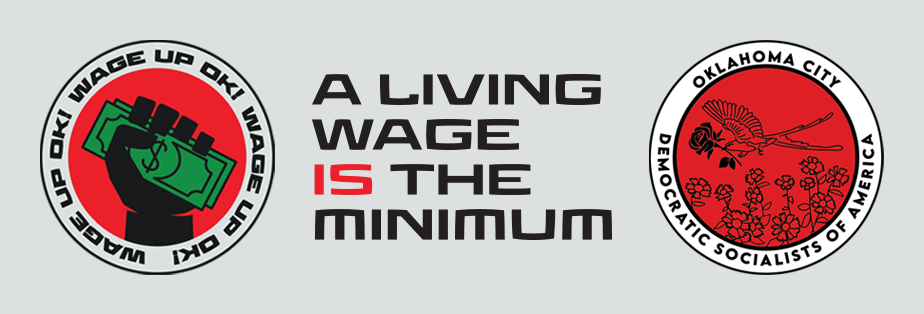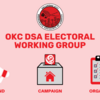Wage Up OK Pledge Form

$7.25 is a poverty wage.
The minimum wage has been stuck at $7.25 per hour since 2009, and as a result, large portions of the population have struggled to keep up with the rising cost of living. If the minimum wage had been adjusted for inflation it would currently be over $11/hour, which would STILL not be enough to afford a single bedroom apartment anywhere in Oklahoma, and almost half a million Oklahomans currently make less than $11/hour. Despite low unemployment, 15.9% of Oklahomans (around 1 in 6) live below the poverty line, which tells us that some of the hardest workers in our state aren't making enough to live on.
State Question 832 aims to correct this by gradually raising the minimum wage to $15 per hour by 2029. It will also tie the minimum wage to inflation, meaning that workers won't get left behind the next time prices increase. Lastly, it will close loopholes which allow certain workers to be unfairly paid below minimum wage.
Aside from making it easier for working Oklahomans to afford basic necessities, SQ 832 will:
- Revitalize local economies: When workers have more money in their pockets, they are more likely to spend it at local small businesses. For every worker who gets a $1 raise, over $2000 goes into the local economy, so even people making above the minimum wage will see more money in their bank accounts.
- Improve the job market for both workers and employers: Increases to the minimum wage make it easier to hire and retain workers, saving on costs associated with turnover. It also makes employees more productive without increasing unemployment. Workers do a better job when they're paid fairly.
- Make housing more affordable: A $15 minimum wage would ease housing cost burdens on over 40,000 Oklahoman households. This would also prevent up to 550 working Oklahomans from experiencing homelessness every year, which would decrease reliance on emergency and social services.
- Make our communities safer: Higher wages make people less likely to engage in criminal activity, and a $15 minimum wage could reduce crime in Oklahoma by almost 7,000 incidents (including 55 homicides) annually. This means it would also save Oklahoma taxpayers almost $1 billion on prisons, police, and social costs associated with crime.
The economy works best when more people can participate, and our current minimum wage prevents hundreds of thousands of Oklahomans from being able to do so. We can fix the problem, but only if we vote to help our fellow Oklahomans on June 16, 2026.
Sign our pledge to vote YES on State Question 832 and help us build an economy that works for workers!
